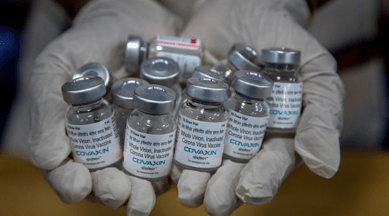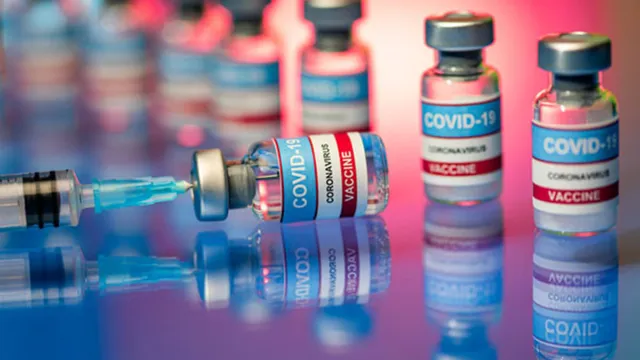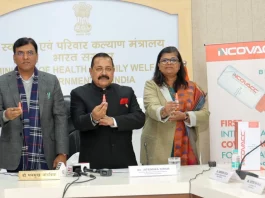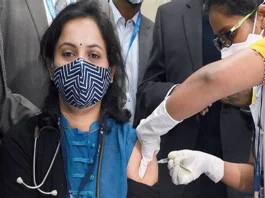Two doses of Bharat Biotech’s COVID-19 vaccine ‘Covaxin’ are 50 per cent effective against symptomatic disease, according to the first real-world assessment of India’s indigenous COVID-19 vaccine published in The Lancet Infectious Diseases journal.
The findings are based on the study conducted between April 15 and May 15, at the height of India’s second wave of infections this year. Covaxin in clinical trials had an estimated efficacy of 65% when the more infectious Delta variant was taken into account.
At the start of the country’s vaccination campaign in January, staff at AIIMS had exclusively been offered Covaxin, a shot co-developed by India’s state-funded health research agency and Bharat Biotech International Ltd.
The authors found that two weeks or more after completing a two-dose regime the vaccine’s adjusted effectiveness against symptomatic Covid was lower than the 77.8% that interim results established during final stage tests, a study of which was published in The Lancet earlier this month.
Also Read: Daily Horoscope: Here’s astrology prediction for all zodiac sign
High infection rates and virus exposure among the hospital’s employees may have contributed to Covaxin’s weaker real-world efficacy, along with the possibility that the then recently emerged delta variant blunted the shot’s protection, the researchers said.
“Our study offers a more complete picture of how BBV152 performs in the field and should be considered in the context of Covid-19 surge conditions in India, combined with the possible immune evasive potential of the delta variant,” Manish Soneja, an additional professor of medicine at AIIMS in New Delhi, said in a statement referring to the vaccine’s scientific name.
The vaccine, which was approved for emergency use in adults in India in January, was granted emergency use listing (EUL) by the World Health Organisation (WHO) earlier this month.
“Our study offers a more complete picture of how Covaxin vaccine performs in the field and should be considered in the context of Covid-19 surge conditions in India, combined with the possible immune evasive potential of the Delta variant. Our findings add to the growing body of evidence that rapid vaccine rollout programmes remain the most promising path to pandemic control while public health policies must continue to include additional protective measures, such as mask-wearing and social distancing,” Dr Manish Soneja.
(With inputs from agencies)




